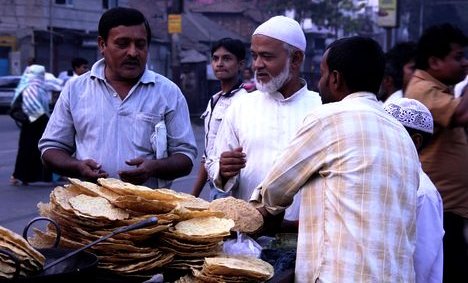Fear of riots in communities is leading towards Isolation…
Eram Eqbal for BeyondHeadlines
“I am second to none, but people think me second to all,” said Sneha, a twenty six year old student aspiring for Civil Service Examination staying at a PG named yaseen girl’s hostel in Abu fazal which is not just her problem, rather has become a common problem faced by every individual who has to stay in an isolated atmosphere. They feel like alien in their own country. This is the reason which made Mrs. Nayyar Rahman to shift with her family to the Johri farm (a Muslim populated area, earlier a part of Delhi suburbs). Her husband is serving in defence where they are offered all the comforts in a well furnished quarter in Lodhi road but she denied from staying there and preferred a place surrounded by people from own community.
Development of a village situated at exterior of the city started in 1935 which was eventually called Okhla with the foundation of a mini world for Jamia University.
The area gradually evolved as a sanctuary for Muslims seeking education, employment and better life. “Many families from old Delhi have moved here,” said Rashid rahman, a twenty two year old student pursuing B-tech from SRM University. According to a real estate agent the boom started after the 1984 anti Sikh riots in Delhi. “Wealthy muslims could afford Samachaar Apartment at Mayur Vihar but we settled at shaheen bagh,” said Nausheena Ali, who is a teacher at the Jogabai MCD school.
Johri farm with it’s air conditioned flats and children’s park is an ideal middle class heaven unlike the localities of Batlahouse or Okhla Vihar. There are no serious power or water shortages here but problems persist, the lack of sewage and draining facility is the most recent one creating havoc during rainy seasons which makes this place a living hell. Illegal encroachments have made the place congested. “There are almost no civic amenities,” complained Johri farm resident Shams Tabrez, who is a consultant at policy bazaar. Other than a government school in Jogabai, there is dearth of decent colleges, but buses come from SRM University, DPS and many more. Nelson Mandela centre at Mujeeb bagh has a well stocked library open to all. There are more than fifteen mosques and less than five temples in Jamia Nagar. The place is remarkably inexpensive. According to a builder Ehtesham, “The current value of a two bedroom apartment is around 14 lakhs. The rate for a three bedroom is from 20 to 30 lakhs and for renting purposes, two bedroom commands around 9000, while the three bedroom set is around 12000 per month.”
Demands for hostels have increased due to the limited seats for girls in Jamia hostel for females. “It’s convenient to stay near college and is safe too,” said Menal, a twenty one year student studying English honors at JMI staying at a place called Panchvati in Julena. For everyday shopping ‘sabka bazaar’ outlets at Abu fazal and Jogabai are much preferred.
Community centre at NFC New Friends Colony has become a hub for youngsters to spend their evenings having the famous shawarmaa at Al-bake.
Beside all the good things there are several aspects which are being missed out. In comparison to cosmopolitans a ghetto girl or a boy doesn’t get enough space to mingle with others. They have restricted themselves to limited areas. India is a diversified country. Mixed cultures including tribal and different languages spoken along with the rituals performed, are the beauty of this country. The concept of ghettoization is ruining the richness of India.
Indians are paranoid of riots. Riots which are politically motivated are hampering the so called ‘brotherhood’. I don’t want to be gender specific so rather than using the term ‘brotherhood’ it lets denote it as ‘bonding’. Yes bondings of two strangers who can be friends forever. It’s a problem for a non ghetto girl too. Like Sneha there are many who are plagued with the same problem of discrimination. Every city has ghettos. After 2002 Gujarat riots many ghettos are being seen there. People are afraid of living in cosmopolitan areas.
Recently conflict in Trilokpuri set a sad example. But one positive thing came out where Muslims were served sharbats by non Muslims on the eve of Muharram as a gesture of respect for the ‘harmony’. Charity Begins at home and the day we will start respecting each other’s cultures and traditions then surely this sense of isolation could be avoided. It is clear with the statement made by Imam of Ramzaani masjid at Abu Fazal, “Every individual and a community has to come forward and get mixed up.” During my research I met two room-mates Anjali, a Jat girl who hails from Haryana and Nikhat who comes from Bihar. Both were sharing a room at Hauz Khas. Their compatibility, love and support is something to look upto. Nikhat said that her owner is not aware about her religion because Anjali has asked her to hide it as to prevent her from being unnecessarily questioned. “It’s surprising to see a Jat and a Muslim staying peacefully together even after the case of famous muzzaffar nagar riots,” said Rajesh Sharma, their coaching mentor who runs a coaching centre at Jia sarai.









